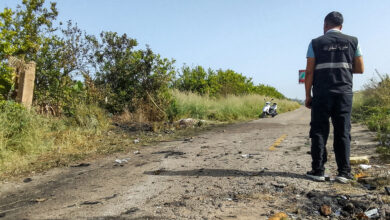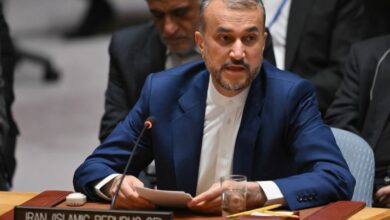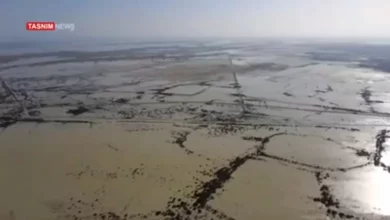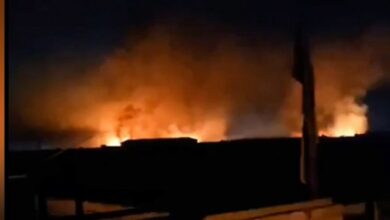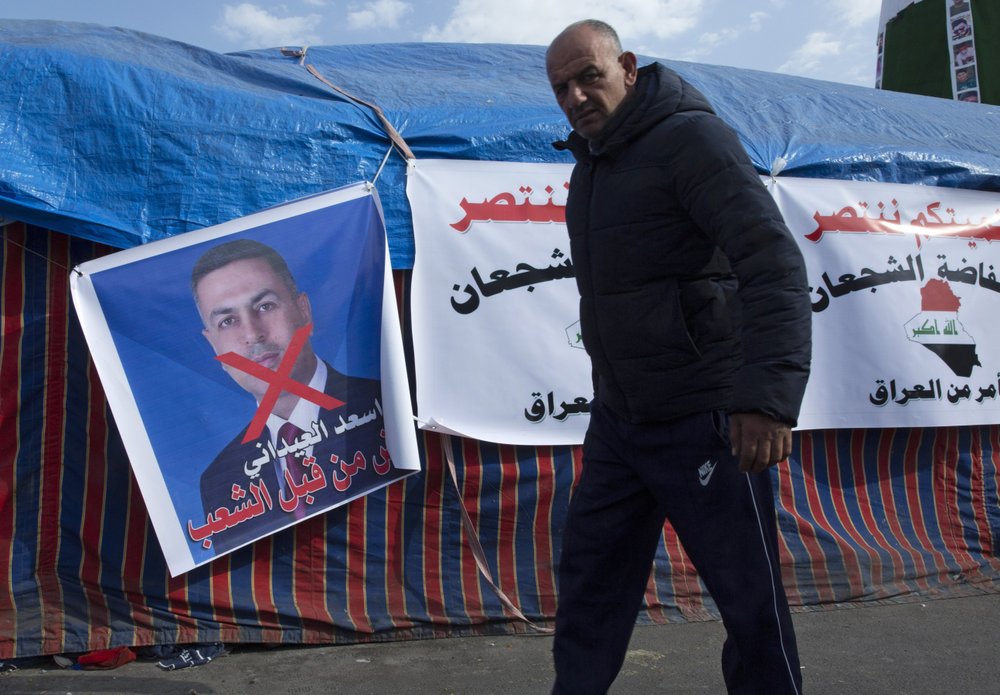
BAGHDAD (AP) — Iraq’s president refused Thursday to designate the Iran-backed parliamentary bloc’s nominee for prime minister after he was rejected by anti-government protesters, and said he was prepared to submit his resignation to Parliament.
Barham Saleh said in a statement issued by his office that he would not name the governor of the southern Basra province, Asaad al-Eidani, as the country’s next prime minister “to avoid more bloodshed and in order to safeguard civil peace.” Al-Eidani’s name was proposed Wednesday by the Fatah bloc, which includes leaders associated with the Iran-supported paramilitary Popular Mobilization Forces.
Al-Eidani was promptly rejected by Iraqi protesters, who poured into the streets to denounce his nomination over megaphones and call for an independent candidate.
Saleh, in his statement, said his refusal to designate al-Eidani could be construed as a violation of the constitution and said he was therefore putting his resignation at the disposal of Parliament. He stopped short of actually submitting his resignation.
The move is likely to further deepen a political crisis in the country, which has been gripped by mass protests since Oct. 1. The leaderless protesters are calling for the overthrow of Iraq’s entire political class over corruption and mismanagement. The protests, concentrated in Baghdad and the mostly Shia-inhabited south, have also turned into an uprising against Iran’s political and military influence in the country.
Prime Minister Adil Abdul Mahdi submitted his resignation late last month under mounting pressure from the protesters calling for his ouster. More than 450 people have been killed since October, the vast majority of them protesters killed by security forces firing tear gas and live ammunition.
According to Iraq’s constitution, the largest bloc in parliament is required to nominate the new prime minister, who then has to be designated by the president. A deadline to name a new prime minister has been missed twice over disagreements on which is the largest bloc in the parliament following last year’s elections.
There are two main blocs in the Iraqi Parliament — Sairoon, led by populist Shia cleric Moqtada al-Sadr, and Fatah, headed by Hadi al-Amiri. But the numbers in the blocs have continued to change since last year’s elections, with an unknown number of lawmakers leaving some blocs and joining others.
Last Saturday, Iraq’s Federal Supreme Court provided guidance in a statement, but stopped short of naming the largest bloc. It said the decision should be based on parliament’s first session after taking office last year. But the court also said it would accept if two or more lists had merged to become the largest bloc.
The same day, President Saleh sent the court’s response to parliament, asking the legislature to say which is the largest bloc.
Shortly after he issued his statement Thursday, Saleh left Baghdad, headed to his hometown in the northern city of Sulaimaniyah.
A Facebook page close to al-Sadr commented on the president’s position saying: “Thank you, Mr. President, for rejecting the candidates that the people reject, a position that history, and the (Iraqi) people and the (Shia religious) authority will record.”
Reporting by Qassim Abdul-Zahra
Image: A protester walks past a poster with a defaced picture of the governor of the southern Basra province Asaad al-Eidani and Arabic that reads “rejected by the people,” during the ongoing protests, in Tahrir square, in Baghdad, Iraq, Wednesday, Dec. 25, 2019. An Iranian-backed bloc in Iraq’s parliament proposed al-Eidani as the country’s next prime minister. However, the nomination was promptly rejected by Iraqi protesters who want an independent candidate to take over the government. Earlier on Wednesday, outgoing higher education minister, who had also been rejected by protesters on the streets, withdrew his nomination for prime minister (AP Photo/Nasser Nasser)

